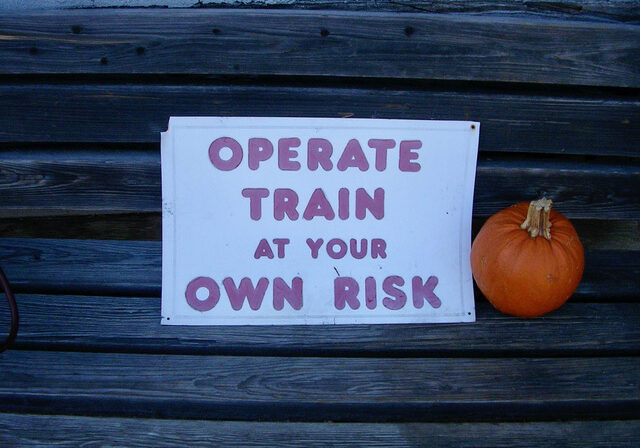
I’m hearing about bitcoin every day! What is it?
Bitcoin is a private, decentralized, digital currency. Each coin exists, electronically, on blockchain. Bitcoin was developed in 2009 by founder Satoshi Nakamoto. This is a pseudonym for the person (or persons) who developed the first blockchain database. Nakamoto designed bitcoin to be a “peer to peer electronic cash system” with no trusted third party and no governmental regulation. Each coin has a set of ‘keys’ used to verify possession.
You lost me. What’s a blockchain database?
Blockchain is an electronic database (ledger) that stores every bitcoin transaction. The ledger exists on thousands of computers (known as ‘nodes’) all over the world. Although every transaction is recorded on the blockchain ledger, there is no centralized authority or organization that controls the ledger. Instead, the ledger is maintained by a network of bitcoin ‘miners.’ This is consistent with Nakamoto’s plan for bitcoin to operate outside the traditional financial system.
That sounds like a hot mess. What’s a miner?
For every bitcoin transaction, you are announcing three things to everyone operating a node: your bitcoin account number, the account number of the person to whom you are sending bitcoins, and the number of bitcoins being sent.
Once your proposed transaction hits the bitcoin network, miners race to add the transaction to the blockchain ledger using their node. To add a transaction to the ledger, the miner must first solve a complicated math problem developed by a cryptographic algorithm (‘hash function’). Specially designed computers solve the problem, which takes about ten minutes. It is essentially guesswork. The first miner to solve the problem adds the transaction to the blockchain ledger using their node.
What’s in it for the miners?
Every time a miner solves a problem, and subsequently records a transaction to the blockchain ledger using their node, 6.25 new bitcoins are created (out of thin air) and awarded to the miner’s bitcoin account. Miners also receive a tip from each transaction.
Mining is a good analogy – some people believe bitcoin is like digital gold. As of January 13, 2021, each bitcoin was worth over $34,000. When bitcoin started in 2009, each coin was worth pennies, if anything. Moreover, mining is the only way new bitcoin is created.
Like gold, is the supply limited?
Yes. According to the original protocol set up by mystery founder Satoshi Nakamoto, bitcoin’s source code limits production to 21m coins. There are approximately 18.5m coins currently in circulation. The last coin will be mined in approximately 2140.
Interestingly, as more blocks of blockchain are created, bitcoin’s source code decreases the reward to miners. This was done to slow the addition of new supply.
This sounds a little crazy. It’s legal?
Electronic possession of bitcoin is legal in the US. However, it was linked to criminality in its early days, due to its use on Silk Road – one of the first ‘dark markets’ (digital marketplaces typically used for illegal transactions) on the web. It is popular with people who need to use money without revealing their identity. Bitcoin is also popular in countries like China and Venezuela, where governments are known for raiding and closing traditional bank accounts.
Whew. If I look past the blockchain and miners and Silk Road, how do I buy bitcoin, and how do I use it?
The first step is to download a bitcoin digital wallet online. You will link the digital wallet to a traditional payment method, such as a credit card, bank transfer or debit card. Bitcoins are purchased on exchanges and transferred to your digital wallet. Don’t lose the password to your wallet! Because bitcoin has no centralized authority, there is no password reset. You’re out of luck.
Assuming you remember the password to your digital wallet, some major retailers accept it as payment. This includes Microsoft (XBox Store) and AT&T. However, many commercial outlets limit bitcoin’s use to certain geographical areas, such as Venezuela.
Don’t let the fact that some retailers accept bitcoin lull you into a false sense of security. Once a transaction is completed, retailers generally convert bitcoin into traditional currencies, like US dollars.
I don’t want to buy an XBox with bitcoin, I want to own it as an investment.
Some people believe the rise of bitcoin is coming at the expense of gold. And like gold, there are a number of ways to invest in bitcoin without possessing it in a digital wallet.
For example, retail investors have flocked to online platforms such as Robinhood to make fractional purchases. Institutional investors typically use Grayscale Bitcoin Trust (GBTC) (a bitcoin holding company) as a means to invest in bitcoin without custody issues. And ARK Next Generation Internet ETF (ARKW) is an actively managed ETF which invests in bitcoin (and other web-focused companies) via shares in Grayscale.
With any of these investments, be prepared for a volatile ride. Bitcoin fluctuates much more than the US dollar and may swing wildly based on news events and potential governmental regulation. In addition, the IRS will have questions: the first page of the income tax form (Form 1040) includes a query regarding the receipt or use of virtual currencies. Tax implications include capital gains taxes, so keep track of your basis.
Is there anything else I should know?
Yes. Questions regarding bitcoin illustrate a central principle of investing: If you don’t understand it, you probably shouldn’t invest in it. Approach with high caution and great awareness of bitcoin’s speculative nature.
Synovus Securities, Inc. (SSI) prepared this information from sources and data believed to be reliable, though SSI has not independently confirmed their veracity. We are providing this material for informational purposes only. It is not an offer to buy, sell or exchange any security or currency, nor is it intended to serve as investment advice. Investment decisions should be based on an individual’s own goals, time horizon, and tolerance for risk.